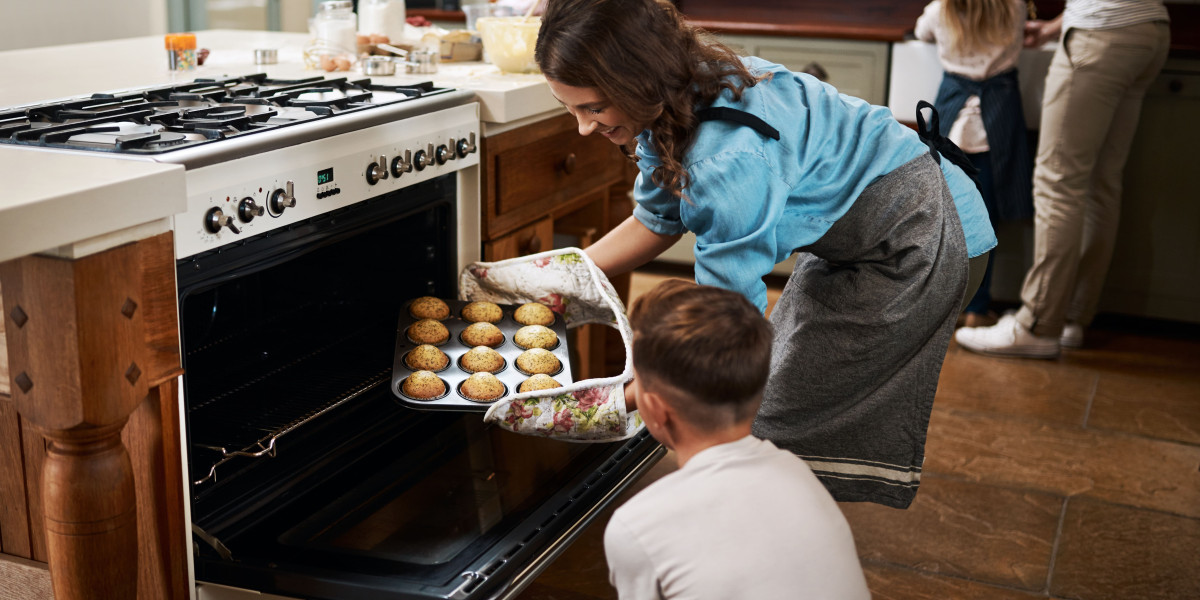
The Rise of Integrated Cookers: A Comprehensive Guide
In the ever-evolving world of kitchen technology, integrated cookers are carving a niche for themselves by mixing convenience, performance, and aesthetic appeal into a single home appliance. This short article aims to inform readers about what integrated cookers are, their benefits, different types, and some FAQs to help customers make informed choices.
What are Integrated Cookers?
Integrated cookers are multifunctional kitchen appliances that integrate numerous cooking approaches into one compact style. These cookers can carry out functions ranging from steaming and boiling to frying and baking. Generally built into kitchen cabinets, they not just save space however likewise enhance the visual appeal of the kitchen.
Typical Features of Integrated Cookers:
- Multi-Cooking Functions: Many integrated cookers can sauté, steam, bake, and even prepare slow-cooked meals.
- Space-Saving Design: Built into cabinets, these appliances help maintain a structured kitchen layout.
- Energy Efficiency: Integrated cookers are designed to utilize energy efficiently, minimizing total cooking time and energy consumption.
- User-Friendly Controls: Most integrated cookers come equipped with digital interfaces and pre-programmed settings that accommodate numerous cooking requirements.
Advantages of Integrated Cookers
Integrated cookers provide many advantages, making them a popular option among homeowners. Below are some key advantages:
1. Adaptability:
Integrated cookers can prepare a range of dishes, including:
- Soups
- Stews
- Grains
- Roasts
- Baked items
2. Space Optimization:
With their compact styles, integrated cookers maximize important counter space, especially in smaller sized kitchens.
3. Enhanced Cooking Efficiency:
Many integrated cookers include advanced features such as pressure cooking and induction heating, significantly lowering cooking times while boosting taste retention.
4. Improved Kitchen Aesthetics:
The seamless integration into cabinets supplies a clean and modern look, which can elevate the total style of any kitchen.
5. Multi-Functionality:
Integrated cookers can frequently replace a number of individual appliances, such as slow cookers, pressure cookers, and ovens, making them an affordable choice.
Types of Integrated Cookers
The world of integrated cookers varies, with various models accommodating different cooking styles and preferences. Below are the most common types:
Integrated Induction Hobs: These cookers utilize electromagnetic energy to heat pots and pans directly, leading to faster cooking times and improved energy performance.
Integrated Steam Ovens: Combining the functionalities of a traditional oven with a steam cooking ability, these models enable moist and healthy cooking methods.
Integrated Slow Cookers: Ideal for those who prefer meal preparation, these cookers can simmer food for hours, making them best for soups and stews.
Multicookers: These are versatile appliances that can perform pressure cooking, sautéing, sluggish cooking, steaming, and even yogurt-making, all in one system.
Comparison Table of Integrated Cooker Types:
| Type | Key Features | Ideal For |
|---|---|---|
| Integrated Induction Hobs | Fast heating, energy-efficient | Quick meals and exact cooking |
| Integrated Steam Ovens | Steam and convection cooking | Healthier meal preparation |
| Integrated Slow Cookers | Long cooking times, keep warm | Stews, soups, and meal preparation |
| Multicookers | Several cooking functions | Versatility in cooking designs |
Upkeep and Care for Integrated Cookers
Guaranteeing the longevity and performance of integrated cookers needs correct maintenance. Below are some vital care suggestions:
Regular Cleaning: Wipe down surfaces after each use to prevent build-up. Follow the manufacturer's standards for deep cleansing.
Check Seals and Gaskets: For models that make use of steam and pressure, ensure that seals are intact to maintain efficiency.
Descale Regularly: In circumstances where tough water is used, it's essential to descale your cooker regularly to avoid mineral accumulation.
Software Updates: If the cooker has a digital user interface, look for software updates to improve functionality and fix bugs.
Expert Servicing: Schedule regular inspections by a qualified service technician to ensure all components are working efficiently.
Frequently Asked Questions About Integrated Cookers
Q1: Can integrated cookers replace individual kitchen appliances?A1: Yes, integrated cookers can typically serve several roles, changing appliances such as pressure cookers, sluggish cookers, and conventional ovens.
Q2: Are integrated cookers energy effective?A2: Most integrated cookers are designed to optimize energy usage, considerably reducing energy costs compared to traditional cooking techniques.
Q3: Is installation of an integrated cooker complex?A3: While installation can be uncomplicated, it may require professional help for optimal results, especially for built-in designs.
Q4: Do integrated cookers feature service warranty coverage?A4: Most brand-new integrated cookers include a manufacturer's guarantee, covering particular repairs or replacements within a stipulated time.

Q5: Are there specific brand names advised for integrated cookers?A5: Several reliable brands produce integrated cookers, including Bosch, Whirlpool, and Samsung. It's recommended to check out evaluations and compare functions.
Integrated cookers represent a significant improvement in kitchen innovation, offering adaptability, effectiveness, and visual appeal. With numerous models offered to match different cooking designs, they have actually ended up being increasingly popular amongst discerning homeowners. Investing in an integrated cooker can streamline meal preparation, save space, and ultimately boost the culinary experience. Whether one is an amateur cook or a skilled chef, these appliances can satisfy the varied needs of any kitchen.








